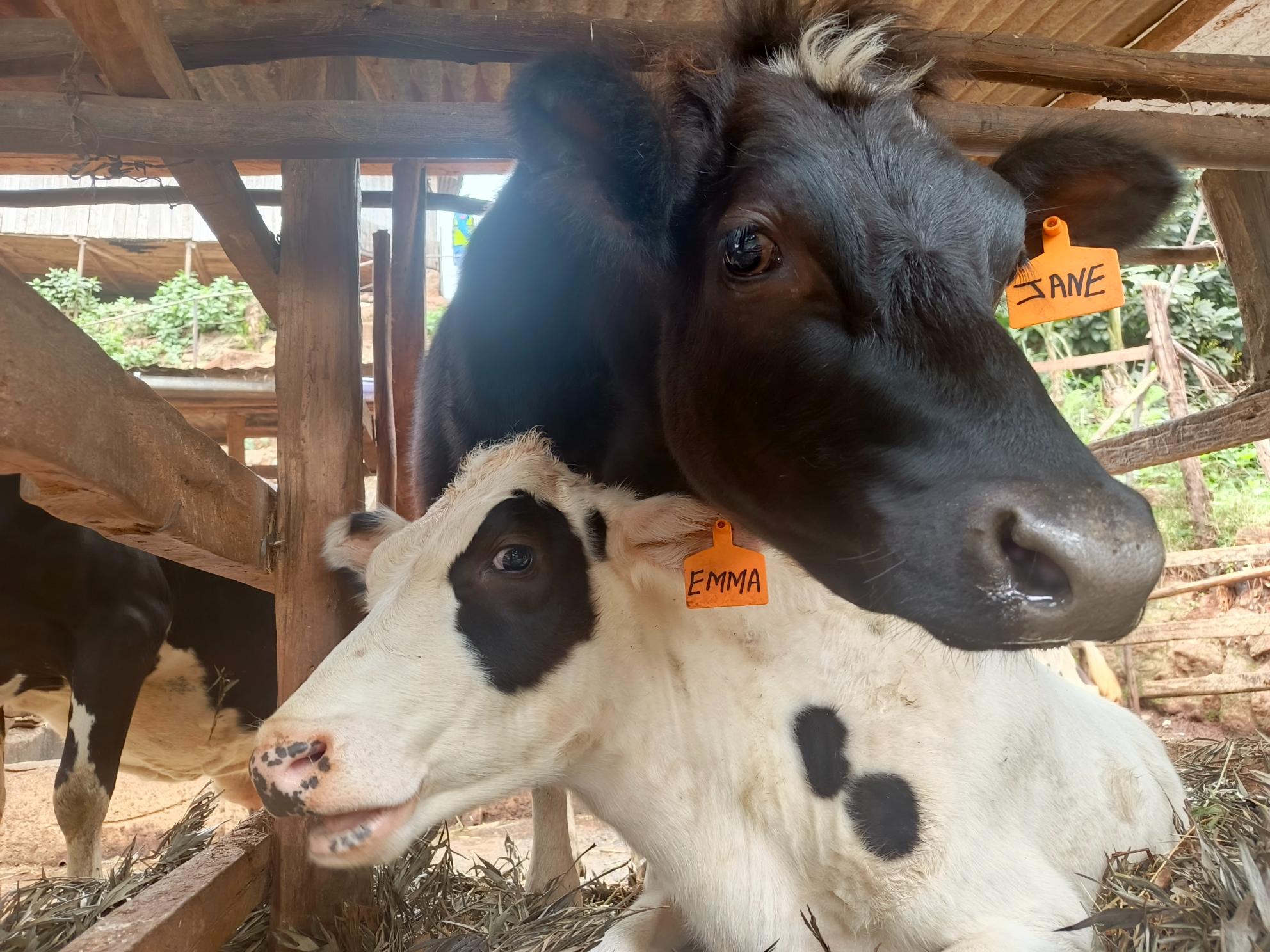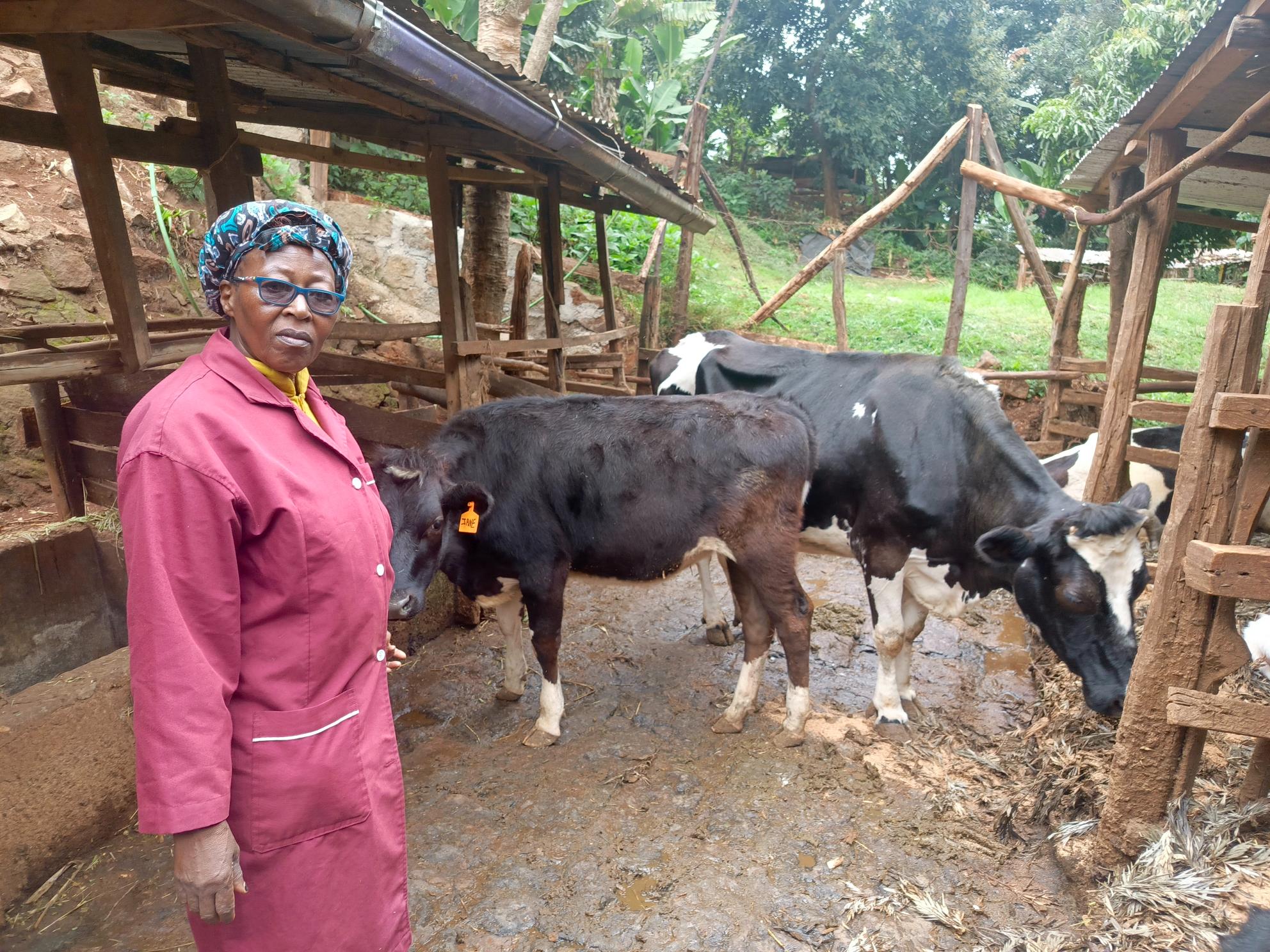
 Dairy cows at Mary Ndung’u, farm at Kianderi Farm
in Mbaini sub-location in Nyeri County./AGATHA NGOTHO.
Dairy cows at Mary Ndung’u, farm at Kianderi Farm
in Mbaini sub-location in Nyeri County./AGATHA NGOTHO. Mary Ndung’u, at her dairy farm at Kianderi in Mbaini in Nyeri County/AGATHA NGOTHO
Mary Ndung’u, at her dairy farm at Kianderi in Mbaini in Nyeri County/AGATHA NGOTHO
Mukurweini’s Wakulima Dairy Cooperative in Nyeri County is emerging
as a model of how farmer-owned businesses can thrive through technology and
international partnerships.
During a recent visit, Sweden’s ambassador to Kenya, Håkan
Åkesson, described the cooperative as an outstanding example of how smallholder
farmers can come together to create a commercially viable enterprise that also
transforms rural livelihoods.
“This dairy shows not only what is commercially sound but
also how a farmer-owned enterprise can support tens of thousands of
livelihoods. Through partnerships with Nyeri county and Swedish company Tetra
Pak, the cooperative now has equipment that allows farmers to scale up
production,” the ambassador said.
“Together with the Food
and Agriculture Organization (FAO), we are also following up on a digitalisation
project giving farmers access to better services and information.”
Mary Ndung’u, a dairy farmer at Kianderi Farm in Mbaini,
began her journey in 2022 with just one cow. Three years later, her herd has
grown to seven. She delivers her milk to an aggregator in Giakanja, which in
turn supplies Wakulima Dairy Cooperative in Mukurweini.
“One of my cows produces between 22 and 24 litres a day,
while another gives about 18 litres,” she said.
Like many small-scale farmers, Ndung’u faces the high cost of
animal feeds, which remains her biggest challenge. To cut costs, she
supplements with napier grass and hay, though she admits feed expenses still
push up production costs.
The cooperative’s upgraded systems have strengthened milk
processing, quality control and traceability, giving farmers like Ndung’u
better market access.
Wakulima Dairy chairman Muhika Mutahi said digitisation has
transformed operations that were once entirely manual.
He noted that when the cooperative started 34 years ago, it
was collecting just 31 litres of milk per day. Today, that figure has grown to
90,000 litres daily.
“We have been improving our systems over the past 10 years,
and today we can trace milk from the farmer to the market. With 20,000 members
representing about 100,000 households, digitalisation has simplified our work
and improved efficiency,” Mutahi said.
Beyond processing raw milk and selling both fresh and
long-life milk under the Royal brand, the cooperative has ventured into value
addition through yoghurt production.
“We want to expand by another 250,000-litre capacity so that
we can do more value addition including mala (both natural and flavoured),
butter, cheese and ghee. This will ensure our members earn more from their
dairy farming,” he added.
County officials also praised the cooperative’s management.
Nyeri’s Education and Training executive Margaret Macharia commended both the
cooperative and the Swedish government for accountability and prudent use of
resources.
“We appreciate the Swedish government for supporting the
Tetra Pak system, which has improved milk collection and value addition. I also
congratulate Wakulima Dairy for managing resources prudently, ensuring
accountability and transparency, which benefits Nyeri farmers directly,” she
said.
The cooperative’s progress is linked to wider digital
initiatives in Kenya’s agriculture sector.
FAO has supported the development of the Kenya Integrated
Agricultural Management Information System (KIAMIS), a national platform for
farmer registration and e-subsidy management.
Launched in 2018 and scaled up with funding from the Swedish
embassy, KIAMIS has so far registered more than 6.5 million farmers across the
country.
Wilfred Oluoch, FAO’s KIAMIS project specialist, said the
aim is to transform agriculture by harnessing digital technologies.
“FAO harnesses the power of digital technologies to pilot,
accelerate and scale innovative ideas with high potential for impact in food
and agriculture. We aim to empower rural households and inspire youth entrepreneurship
in food systems,” he said.
Founded by smallholders, the cooperative has grown into one
of Kenya’s leading farmer-owned cooperatives.
Ambassador Åkesson said the story of Wakulima dairy illustrates how technology, partnerships and good governance can help small farmers compete in an increasingly demanding dairy market.













